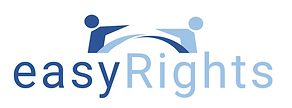
II LARISSA HACKATHON
Encouraging a precise and well organised procedure for the official registration of a child
Registration opening: 8th November 2021
Registration closing: 1st December 2021
Pre-hackathon event: 26th November 2021
Hackathon event: 2nd, 3rd, 4th December 2021
WHY
The right to personal identity is recognised in international law through a range of declarations and conventions. From as early as birth, an individual's identity is formed and preserved by registration or being bestowed with a name. The right to have and develop a personality is addressed in Article 22 of the UDHR: "Everyone is entitled to the realisation of the rights needed for one’s dignity and the free development of their personality."
Registering the birth of a child in Larissa (Greece), requires parents to initiate a process which objective is to receive the "Registration of a birth" document from the local Municipality. Despite being finalised at the Registry Office, this process starts way before when the migrant – coming from either an accomodation program (like ESTIA), or the local Refugee Camp – interacts with an officer at the local hospital where the birth is given.
During the whole process, migrants interact with different actors throughout different steps and ultimately, they would need to provide a series of documents:
-
'Birth Declaration' certificate, issued by the registration unit of the hospital or clinic where the birth took place.
-
The Residence Permit or Asylum Seekers' Cards of the parents.
-
Tax and social security numbers (AFM and AMKA).
-
Family status certificate or marriage certificate (if available).
The attention to details required to reach the submission of official documents, and the complex amount of actors involved in different stages are the pain points that mainly define this challenge. Sometimes unforseen issues need to be solved at the local court that require legal aid.
THE CHALLENGE
The issuing of the birth certificate in Larissa consists of several steps that migrants have to fulfill and go through. Initially, when the parents are about to give birth to the child, they would go to the local hospital or clinic to give birth (1). After the child is born, a hospital's officer informs the migrants that they should fill in a Registration Form to initiate the birth certificate procedure while at the hospital. The form is physically filled up by a hospital officer and digitalized at a later stage (2).
An officer from the Municipality of Larissa schedules a physical appointment (3) at the Municipality Registry Office with all relevant parties (social workers, interpreters, hospital officers, and parents), to confirm the data in the issued birth certificate is correct. At this point, the process moves forward and all involved parties need to fill in a second form to confirm the name-giving of the child (4). Only after this validation the Registry Act is completed and certified by the Registry Office.
This process presents several pain points. Several difficulties encountered by migrants can limit and slow down the process of registering their child. For example, while in the hospital (2), the parents need to declare their name exactly as it is written in all their legal documents; and here the language is a barrier. In fact, not all migrants can have an interpreter with them. In the case there is no interpreter it might be difficult for the hospital officer to collect the information right. Spelling mistakes in the official documentation might severely complicate the procedure. If the mistake is simple, the correction may be made by a Public Prosecutor’s order. But if the mistake is more complicated to ammend, it will have to be corrected by a local Court through a time-consuming process that requires extra legal aid.
At the same time, booking an appointment with all relevant witnesses at the Municipality Registry Office (3) requires a big effort from all parties in terms of coordination and availability. This process is done by contacting the involved parties one by one until finding a suitable slot for meeting. After issuing the birth certificate, it is necessary to book another meeting right away to issue the Registry Act (4) – which confirms the name-giving of the child.
This procedure demands high level of detail attention and coordination between all involved parties. The lack of digitalization prevents the relevant stakeholders to manage the steps and solve certain issues efficiently and independently. Improving this process would ease the experience for both immigrants as well as officers from different institutions such as the hospital, the municipality, and the refugee camp.
Within the hackathon, we invite you to find a solution that improves the experience of migrants – as well as other actors – that deal with the complex bureaucracy around issuing a Birth Certificate in Larissa. Besides addressing the issue of spelling mistakes in the process, it should also tackle the challenge of allocating a slot of time suitable for all involved parties.
HOW - hackathon & solutions
During the 3 days of the II Larissa Hackathon, the different activities will facilitate the development of technological solutions that best serve the migrants' needs when providing the needed documentation and dealing with the different steps of the Registry of a Birth. During the event, you will create an accessible and migrant-centered service that can positively impact the process for registering a child's birth.
The solution should address the different steps of the previously-described journey:
-
provide a strategy to check the correctness of the migrant's information and mitigate the risk of spelling mistakes;
-
design the touchpoint for migrants to provide the relevant documentation without any effort;
-
providing an effortless process for booking appointments at the Municipality Registry Office with all required participants.
To do so, we will provide you with three already-existing technologies that focus on the language and bureaucratic barriers migrants generally encounter when interacting with a service. Your solution should integrate at least one of these technologies to address some of the above-described specific problems associated with the Registry of a Birth procedure:
-
Capeesh - aimed at providing situation-specific language courses
-
CALST - meant to training migrants in the pronunciation of challenging sounds and words in their new languages
-
Pathway Generator - directed at breaking down complex bureaucratic procedures into actionable pieces of information The integration of these technologies in your solution will help you in addressing the challenge and facilitate the migrants' comprehension of the whole journey
WHO - The organisers
The Municipality of Larissa is the main coordinator and organiser. The Municipality joined forces with the H2020 easyRights project to support migrants in the access and exercise of their rights.
WHO - Teams
The hackathon is open to approximately 20-30 participants. We truly believe in diversity and collaboration to find meaningful and context-rooted solutions. Therefore, regardless of their background or nationality, the participants we seek respond to the broad (and specific) description of visionaries, developers, designers, marketers entrepreneurs, engineers, migrants and field experts.
Considering our previous experience running hackathons, we acknowledge the importance of the developers' contribution in making sure the final solution meets all necessary requirements to be implemented and sustained in time, reinforcing its option of becoming a winning idea.
WHO - Partners
Numerous experts will inspire the teams in their hackathon journey. On one hand, we will count with those who have the experiential knowledge about the challenge we are addressing: professionals from humaitarian organisations and representatives of the migrant communities that take part on them will inspire with their stories the search of solutions and provide feedback based on their expertise to guarantee consistent and meaningful solutions for this target group.
Complementary, a skilled task force of decision-makers, lawyers, designers and tech experts will guide the work of the participants. Their multidisciplinarity covers a broad spectrum of areas, ensuring that you will get the needed support at each moment of the process, whether you struggle with the definition of the concept, the information architecture, the data management, or the integration of existing technologies in your solution. They will be available for consultation and feedback throughout the three days of the event.
WHERE
Online, maybe hybrid covid-19 permitting, the intensive 72-hour event will provide the collaborative and engaging digital environment to transform technical solutions from ideas to prototypes
WHEN
You can already register for the hackathon event, either individually or as a team:
Registration opening - 8th November 2021
Registration closing - 1st December 2021
One week before the hackathon starts, we will have a pre-hackathon event, when – in 1.5h – we will introduce you to the topic, give you access to the technical tools, facilitate the group formation and have a Q&A session. Save the dates!
Pre-hackathon event - 26th of November 2021
Hackathon event - 2nd, 3rd and 4th of December 2021
And then what? - WINNERS
The winner will be chosen during the last day of the event by a jury formed of technical and service experts, who will evaluate the proposed solutions on different criteria:
Impact - Does the solution influence easing the process for the immigrants?
General feasibility - Is the proposed solution feasible from an economic, technical, legal point of view? Is the proposed solution meeting the time constraints that ascertain the likelihood of completing the project successfully? Does the group have the capabilities and the overview to develop the solution towards its full implementation?
Sustainability - Is the proposed solution sustainable in time?
User-centeredness - How user-friendly is the designed interaction for both migrants and service providers? (that is, a solution that is not difficult to learn or understand, simple-to-use, convenient, accessible, and straightforward).
Technical integration - To what extent is the proposal integrating the existing easyRights IT solutions?
The winning team will be offered a 5000€ contract to work on the further development and integration of the proposed solution within the service provision, in collaboration with the easyRights technical team and the municipality of Larissa.
Info & Consent Form for the Hackathon
We thank you for participating in this event. In compliance with the General Data Protection Regulation of the European Union, and the provisions of national legislation Data Protection 2018 we would like to assure you that your personal data (name and surname, affiliation if any, e-mail address and signature) will be used only for the purpose of organising this hackathon, but never shared with anyone else for e.g. commercial or other purposes.
Download Information notice and consent form for hackathon events (in English).
